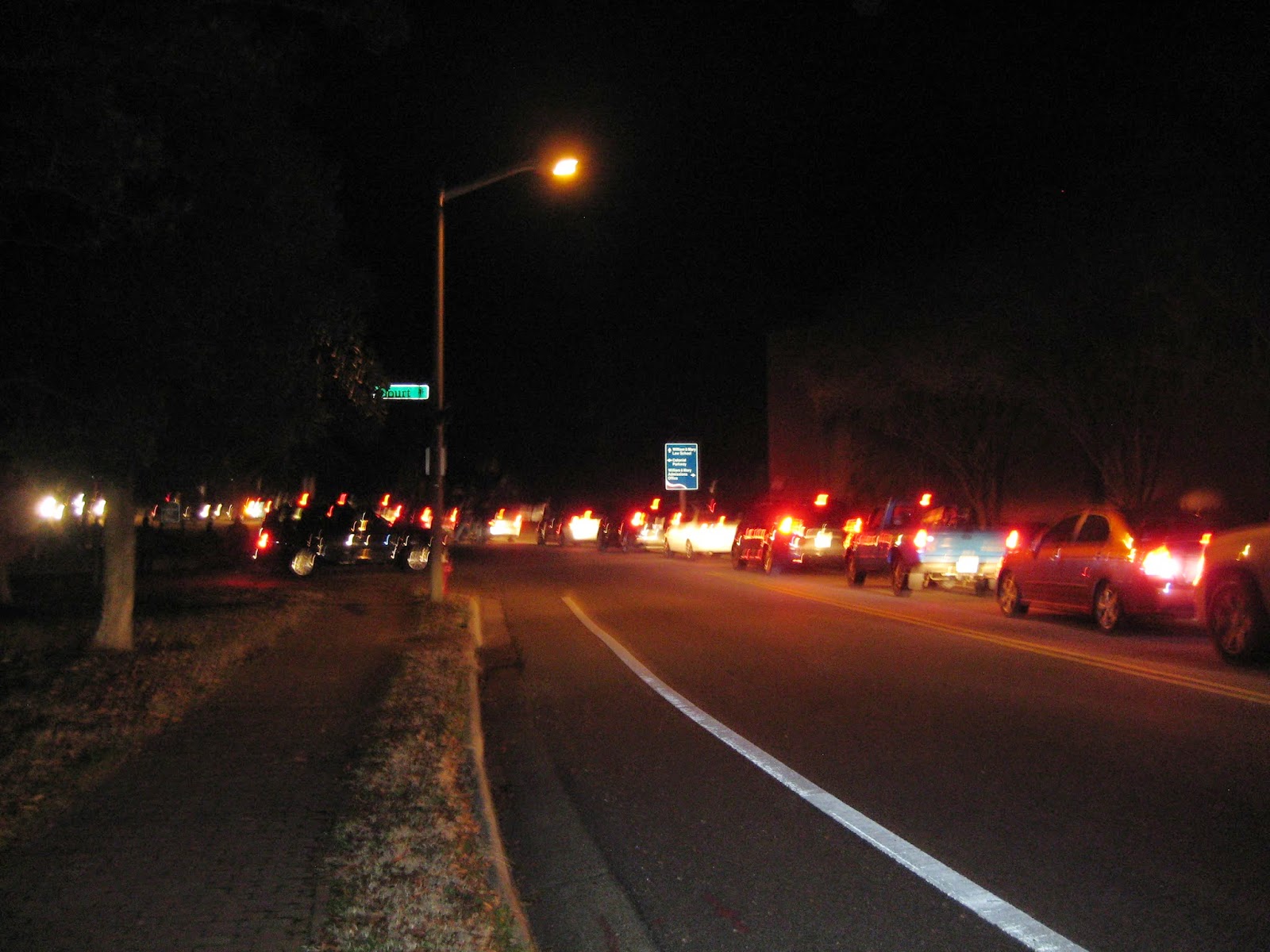I’ve discovered that I prefer take-at-school finals to take
home finals. I’d rather have the compressed stress of a few hours of testing
with a definite start and end time than the elongated discomfort of an all day
(or three day) take-home exam.
I had my first regularly scheduled final exam this week.
After a Monday of studying Business Associations, I spent four hours on Tuesday
morning writing as much about partnership law, fiduciary duties, and corporate
law as I could come up with. I don’t think the end result was very good; I just
hope it was enough. While I enjoyed the class and felt like I understood the legal
reasoning, I don’t think I did very well on applying the law to the facts given
in the final.
But at least it only lasted four hours.
Tuesday night was much more enjoyable. I was invited to join
a friend for some respite from school and studying at a Tallis Scholars concert
in Newport News. The Tallis Scholars sing Renaissance choral music – no instruments
or microphones, just ten people singing on stage and absolutely filling the
concert hall with pitch perfect music. It was beautiful.
Though I feel such music should, as a general rule, be heard
in a concert hall or a church, YouTube works in a pinch. Click here to listen
to Vigilate, by William Byrd.
I spent the rest of the week researching for my supervising
professor. He asked me to research organ (as in kidneys and hearts, not musical
instruments) donation and alternative
reproduction technologies (such as in vitro fertilization). This led me on a
nice tangent into 3D printing, which has expanded to the realm of printing
human tissue. One of the major companies working on organic 3D printing uses “Bioink”,
an substance made out of living cells and support material (if I remember
correctly). That term made me smile; to paraphrase a Calvin & Hobbes cartoon, “Scientific progress goes Bioink.”
On Saturday I was treated to another concert, this time at
the Williamsburg Community Chapel . Their Christmas concert was performed with
a lot of heart and enthusiasm. It struck me as halfway between the Lawrence
Welk show and the Mormon Tabernacle Choir. Not something I’d go to every year,
but a nice evening out after a week of staring at my computer.
The week ended on another musical note: the ward choir
Christmas program. Our performance made me realize how quickly this semester
has gone by. We started practicing Christmas songs in August; now all of a
sudden the program is done and the semester is nearly over.
In fact, there are three school days left: one for six more
hours of research, one for studying Trusts & Estates, and one for taking my
last exam – which will happily only last three hours.




























































